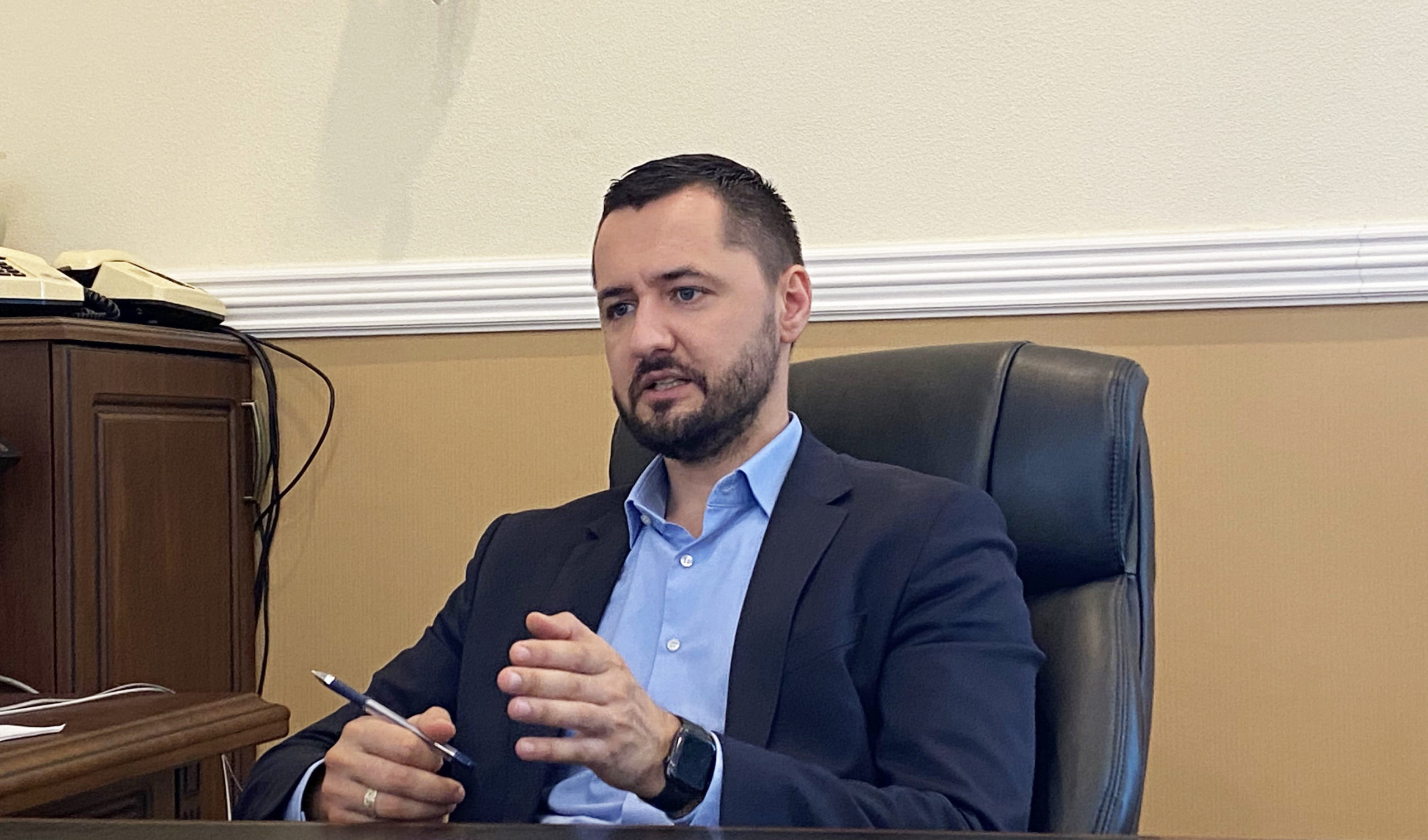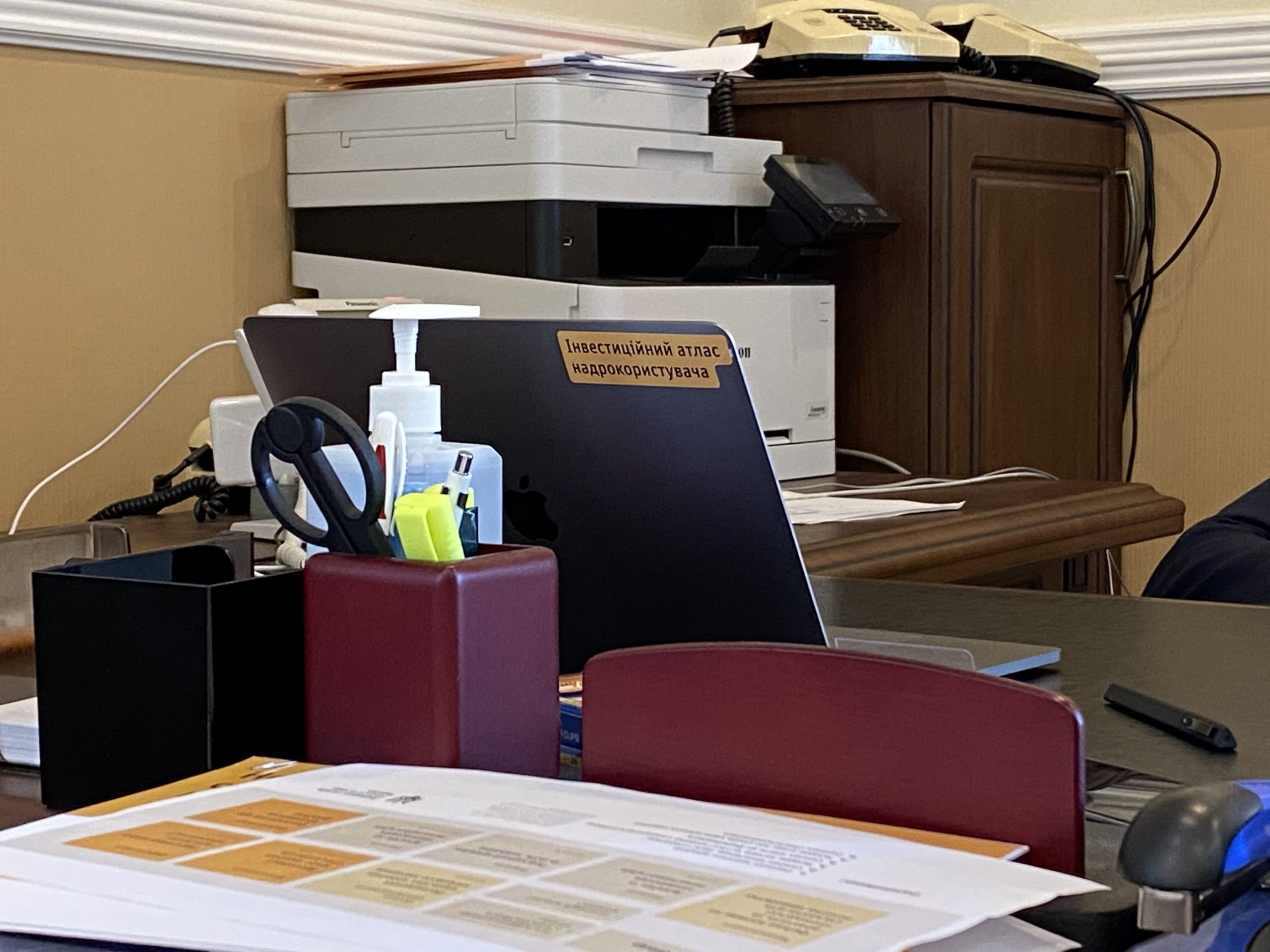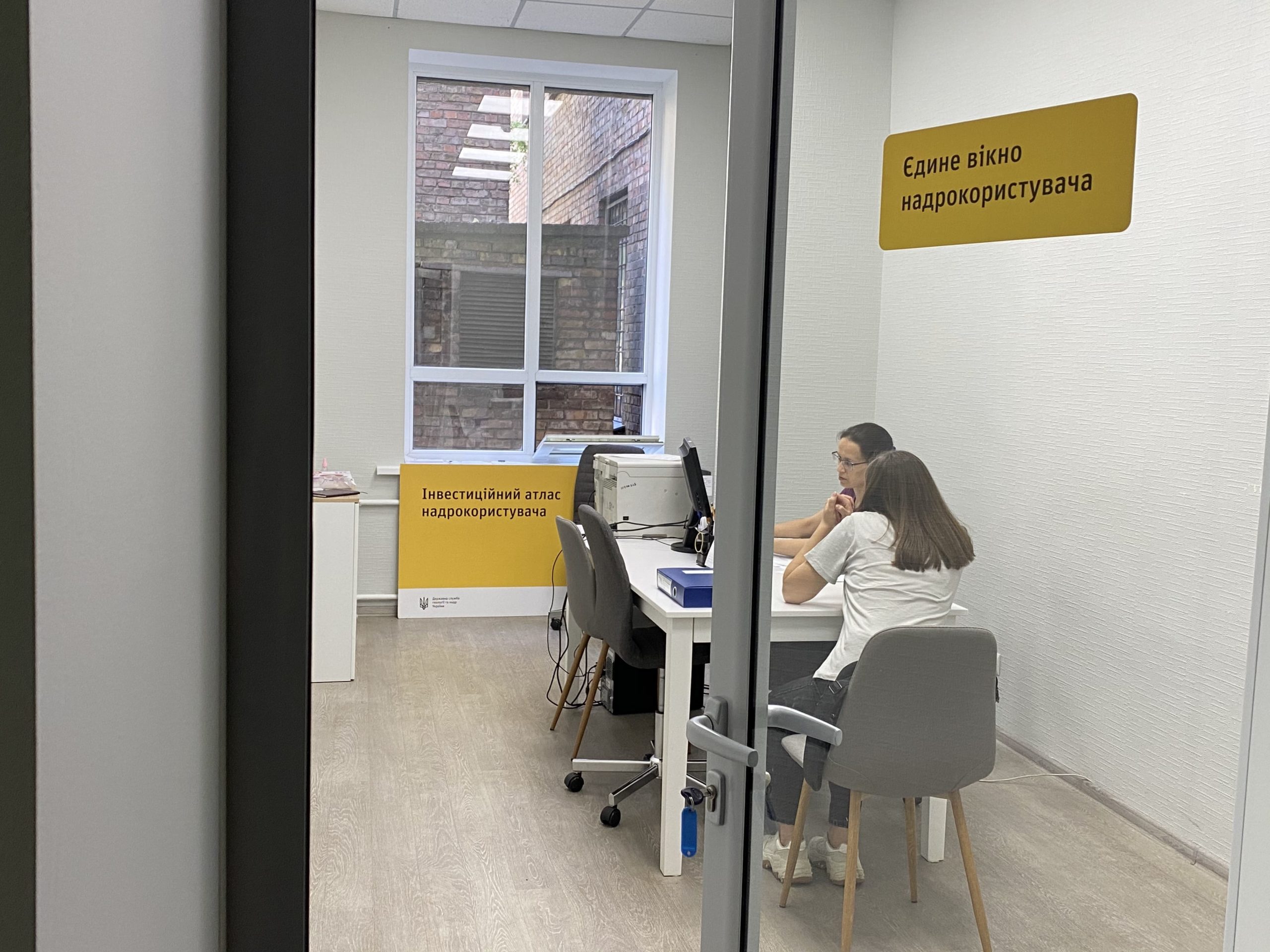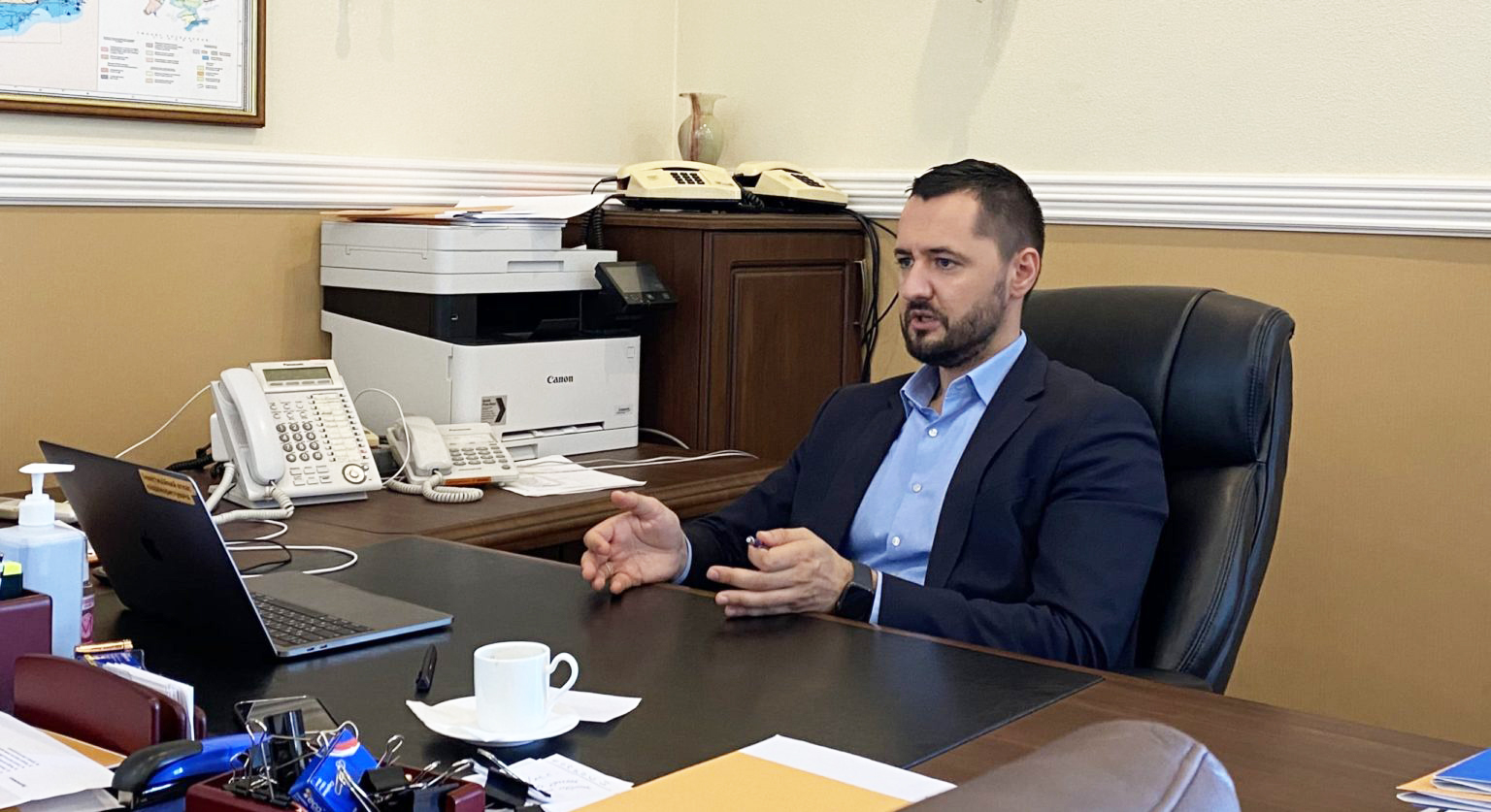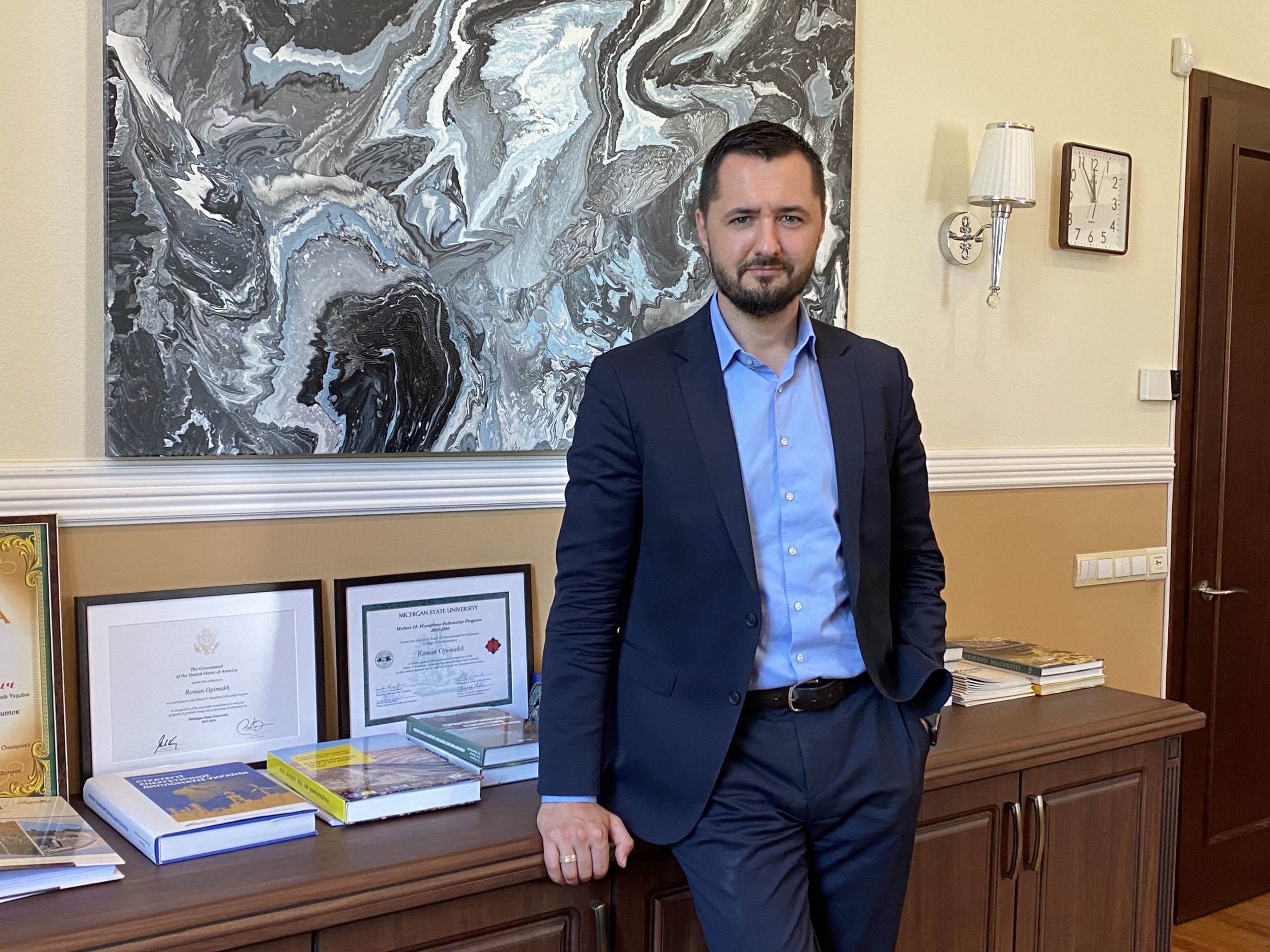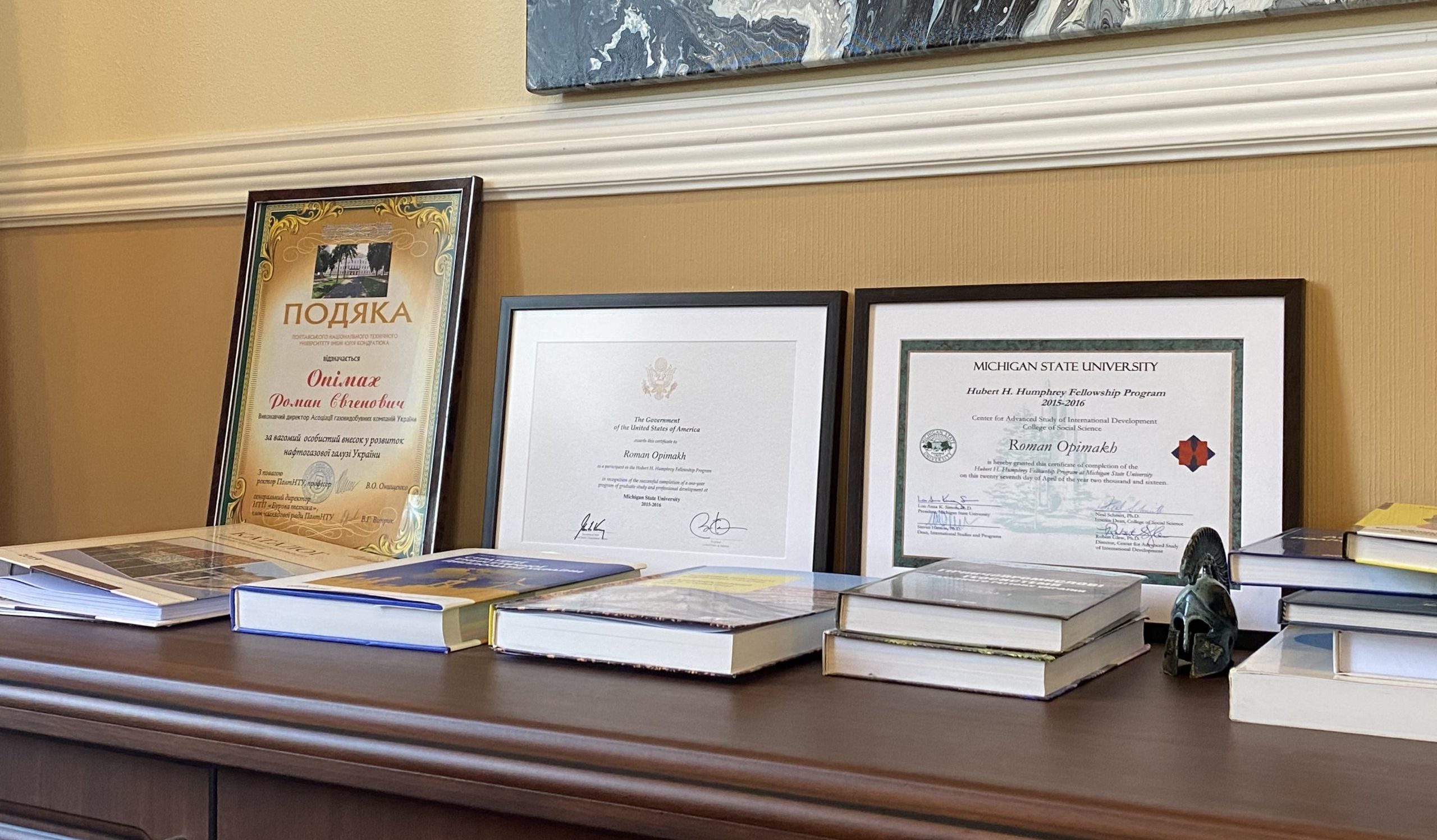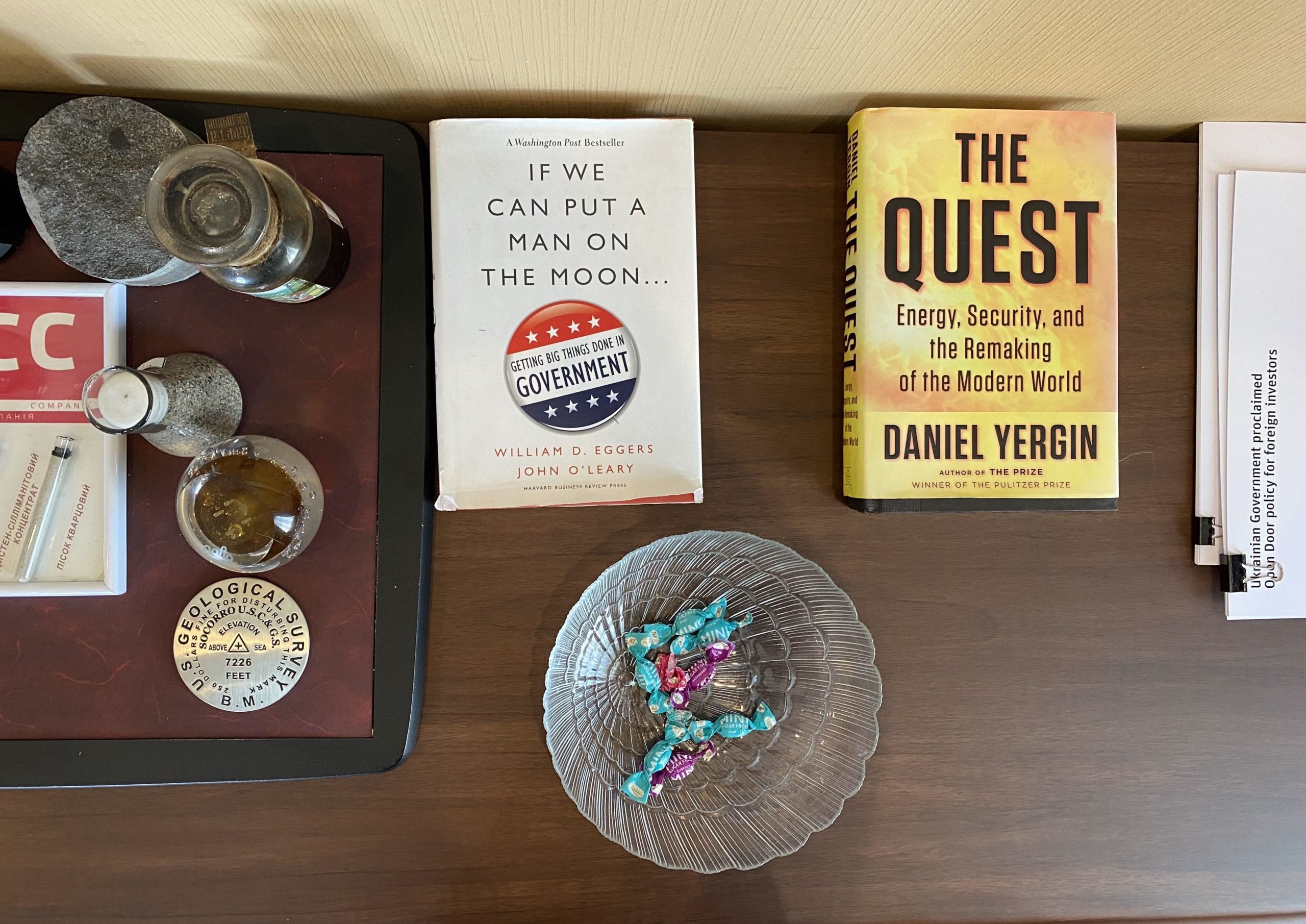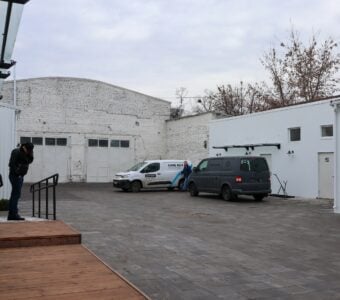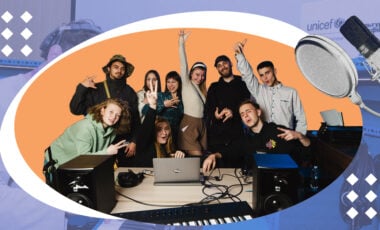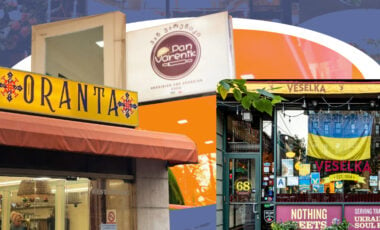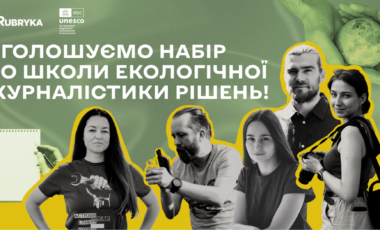Bribe-free mining business is a reality. Head of State Service of Geology and Subsoil on reforms and new rules of the game
How can Ukraine break out into the league of powerful states thanks to the competent use of resources? What's changing for investors? We asked Roman Opimakh, the head of the Ukrainian State Service of Geology

Photo: Rubryka
Recently, many "firsts" have happened in subsoil mining. For the first time, a license was issued for the legal amber extraction. For the first time, an ambitious goal of 1 billion hryvnias revenue was set to the state budget for the sale of subsoil plots. For the first time, the price at e-auctions exceeded the initial one by 17 times. What's happening is called an industry revolution.
The Head of the State Service of Geology and Subsoil of Ukraine, 37-year-old Roman Opimakh, reported for his first half-year in office in August. Considering the statements about new legislative decisions and an on-all-fronts shift, Rubryka asked all the questions concerning the market and society most.
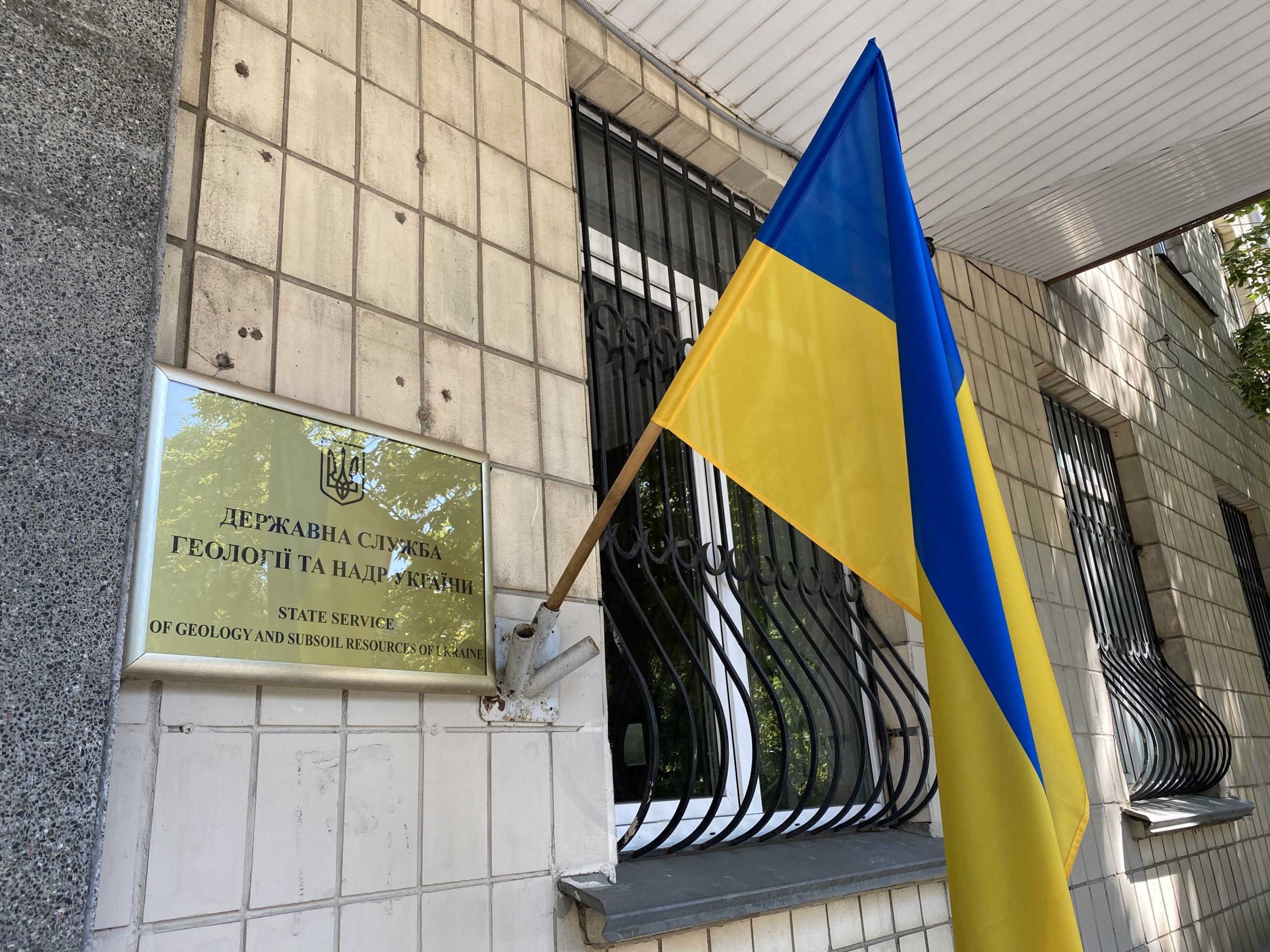
The building of the State Service of Geology and Subsoil of Ukraine resembles a school: traditionally painted walls, narrow gray staircases, labyrinths of corridors. But in the course of a conversation with the head, you're convinced that they undoubtedly got rid of the stagnant energy here / Photo: Rubryka
So, what can Ukraine offer to itself and the world? How does the subsoil mining industry work being until recently strongly associated with corruption? What's changing for investors and all stakeholders? Chairperson of the State Service of Geology, Roman Opimakh, answers.
HOW TO MAKE UKRAINIAN SUBSOIL ATTRACTIVE
— You state that the subsoil should become the driver of the Ukrainian economy. But back up your thesis about our great potential with arguments. What countries are we on a par with in terms of subsoil use and subsoil potential?
— The field of subsoil use is of great importance to the Ukrainian economy. It affects the country's commercial balance and job creation. 20% of the workforce is involved in the production of minerals. These are also significant revenues to the state budget: last year alone, the mining industry and quarrying paid more than UAH 104 billion in taxes. In addition, 60% of export earnings come to Ukraine precisely from the fields related to subsoil use.
Mineral deposits in Ukraine are diverse. We have almost the entire periodic table in our subsoil. In terms of natural gas reserves, we are among the top three countries in Europe. Potentially, Ukraine can fully provide itself with its own gas and significantly increase oil production.
What's important, we have lithium and titanium deposits, unlike many countries. There are lithium reserves, but no production; titanium has reserves, production, and export potential, and companies running in the segment. There are gold and uranium deposits, also being developed. We have potential areas that we still need to attract investors to.
I mentioned large resource ore and oil and gas minerals, which require large investments, technologies, and knowledge. But we can see more easy projects for medium-sized businesses, which can rally from 10 to 50 people and organize a business related to the extraction of clay, sand, granite.
— What is in greatest demand now?
— Taking into account the economic global recession, pandemic, and threefold drop in oil and gas prices, the results of the latest auctions show that this year the resources and minerals that can be developed in 2-3 years are in the greatest demand. It means the ones that will quickly start generating money.
We see bidding dynamics: for clay, they paid UAH 40 million with 16 thousand starting price for e-bidding; for amber, over 12 million out of 333 thousand. But the price of land plots explodes.
We started another promising direction: we joined the national "Big Construction" program under the president's patronage. We initiated a meeting with Ukravtodor, asking where they had a shortage of resources (sand, raw materials for the production of crushed stone, other minerals used in construction) in the priority areas of construction. We've prepared 79 objects for auctioning along key routes. It'll contribute to creating jobs, speeding up works, and reducing the prices by optimizing logistics; roads won't be damaged during transporting construction materials when they're brought from other areas.
— Are there interested investors in "more complex" minerals, not clay or sand? For example, lithium. The association immediately raises. Lithium-ion batteries …
— Elon Musk, rockets … (laughs)
— Or is it still sci-fi-esque for us?
— No, it's not far-fetched. There's an interest in lithium. We hold leading world positions in terms of its reserves; there are several deposits with promising resources. But developing them requires significant investments; even at the stage of geological exploration, it's UAH 3-4 billion. It's vital to apply technologies absent in Ukraine today. First, it's the construction of a plant processing and producing raw materials in demand not only in Ukraine but also abroad. It should be a global market. International market players may be interested. For this, we need to prepare objects, collect geological information, and engage in their promotion at the level of top state managers, who'll talk about it. Before the coronavirus quarantine, my team and I visited the largest PDAC International Forum and Exhibition in Toronto, where we presented the Ukrainian potential.
It's also important to make the rules attractive to foreign investors. For example, e-auctions are great because they provide an entry point for everyone.
"WE'VE FACED MARKET ENTITIES"
— Do you consider the electronic auction system complete, or how do you plan to improve it?
— The system of using electronic auctions has fully justified itself. More so, we cooperate with BLM (Bureau of Land Management – Ed.), an American agency with similar powers. The States use the same system. Ours is even more liberal on some levels.
We see dynamic price growth: in 2019, the starting price increased on average by 60 percent; this year by 17 times.
What would I improve … I think if even one participant comes, the auction should be considered valid. If one participant who paid 10% more than the initial cost, that's enough (now at least two participants are required – Ed.). I might simplify the conciliation procedure. Rather, it's about the pre-auction process.
— What about the mechanisms for obtaining geological information for subsoil users? Isn't this process slow now when you have to wait for months? Are you considering automating the process, making the data more open?
— We work on it every day. We understand that they make investment decisions in this sector based on geological information. Nobody will buy a "pig in a poke." There are certain limitations and barriers that have historically been present.
We've launched the Subsoil User Investment Atlas (scrolling through, it's also available online). Almost all sites have one-pagers (one-page presentation – Ed.), describing the geological site, and links to additional geological information. We prepare each site this way. Also, we don't take out objects for the sake of it. Market entities nominate or initiate all lots.
In order to simplify access to geological information, we've launched a register of protocols of the State Commission on Mineral Reserves and Resources. Over 3000 protocols are now online; the digitization process continues. Basically, there are over 8 thousand protocols.
— The atlas for investors is only in Ukrainian, isn't it? No English version?
— I think it makes little sense to provide information about Ukrainian sand and groundwater in English. If we had the institutional ability to translate it into English, we would do it.
But for large projects, we do English translations. (Getting up, bringing us more documents) In London and Canada, we presented everything in English, of course.
Turning to geological information, there's another important aspect: determining the initial price of special permits and the cost of geological information. We have completely updated the method for calculating the initial cost of special permits for the auction and discussed it with market participants. Now we've already approved it with all government agencies, and now it's in the Ministry of Justice. Soon, it'll be submitted to the Cabinet of Ministers. The alternative method removes subjective elements, judgments, or discretion in the assessment. Everything will be transparent; there'll be no further problems and stories with NABU. It'll be an electronic calculator that a market entity can use to calculate the initial cost of a special permit independently, in most cases.
We are simplifying the geological information cost determining so it's clear for everyone; we'll bring it to the level of legislation.
In addition, we are working on creating an electronic profile for a subsoil user.
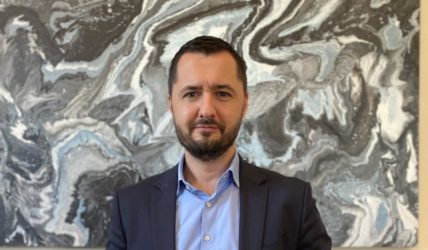
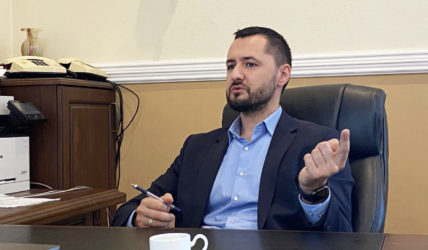
— What's changing for subsoil users?
— Earlier, there were many request refusals. In 2019, 65% of applications were rejected. It's an enormous amount. Plus, 50% of them have applied three or more times. You bet a subsoil user is not happy with the situation. What we did immediately was that we launched One-stop Window for a subsoil user. It's a comfortable room working on a five-day schedule. A person signs up online; similar to arranging a visa, you get an appointment. They divide appointments by day for visitors' convenience, because many people come from the regions. The subsoil user prepares a package of documents, and the employee responsible for a certain group of minerals checks them for compliance with the legislation and gives comments. If they can correct something on the spot, print the changed version, or some letter of verification is missing, the employee comments to prevent such moments. It saves time. Nobody wants negative emotions. We've faced market entities.
But the future belongs to the subsoil user's electronic profile when you can submit most documents electronically and track their status. It also applies to reporting for subsoil users. And it's not fiction. In many departments, such a service is already working, it's just that they have a larger audience. We have 2.5 thousand subsoil users. Introducing a subsoil user's electronic account is an urgent need of the industry. It'll ensure the full-on leveling of subjectivity and selectivity in the department's work; the field of subsoil use will become more convenient and apprehensible.
Now we have the first user profile version, developed with funds from international technical help, however, its functionality is very limited. Together with the Ministry of Environment Protection, we're trying to resume cooperation with donors and launch the perfect software version. In any case, it's our priority, and we'll definitely give results. Quality is our major concern. Timeline is from six months to nine months, depending on the speed of the developer implementing the technical design specification.
"PANIC COMES FROM LACK OF AWARENESS"
— What amount of investment projects do you set as a goal and consider a realistic indicator?
— This year we announced 6 auctions and put up 47 lots. 26 of them were purchased. The rest are either in a bidding mode (there are 19 of them), or the first bidding didn't take place.
After the held auction, the state budget will receive UAH 106 million. The plan is that the figure would reach UAH 400-500 million by September.
The Ministry of Environment Protection is approving 170 packages of documents for holding auctions or granting special permits. Once positively assessed and returned to service, we will immediately announce auctions. Among them are 40 areas with amber deposits, non-metallic minerals, water, gold metals, and similar. There are many interesting objects. We expect that it'll additionally bring UAH 500 million. We can reach about 1 billion of attracted investments by the end of the year.
We are working on concluding production sharing agreements. These are large-scale projects; competitions for them began last year. If 8 deals are closed, the obligations will amount to $450 million; it's the oil and gas sector. In the coming months, we'll already close the issue.
There's also an interesting case of Cersanit, a well-known Polish holding. They expanded their resource base by purchasing a subsoil plot with clay deposits at an e-auction. It'll allow them to build new facilities and additionally attract 50 million euros of investment in Ukraine. In fact, the key indicator is how much taxes subsoil users will pay later, how many jobs they'll create.
— Communities complain that they'd like to have a higher tax from subsoil users to the local budget.
— They have the tax now. If the minerals are of local importance, one hundred percent of revenue goes to the local budget. If they're of national importance, 5 percent of revenue goes to local budgets since 2020. And these are good finances. Last year, UAH 2 billion was paid to local budgets at the expense of 5% of the leasehold interest for oil and gas.
— Now for the first time in Ukrainian history, a private company, NESU, is developing uranium deposits. You've repeatedly stressed that it's a strategic goal of the state, because we buy 70% of fuel for our nuclear energy abroad, in Russia. But because of many prejudices, the community around the Surske deposit in the Dnipropetrovsk region is worried and asking questions. How do you respond to their concerns?
— Environmental issues are relevant now. But either we do nothing, or we create jobs and pay taxes to the local budget, making sure that they carry out the development under technologies, legislation, and standards.
Today local communities have all the tools to influence and track the implementation of such projects. First, the very procedure for conducting an environmental impact assessment provides for mandatory positive public hearings with ministry representatives, a subsoil user, and independent supervision taking part. The company must convince the communities during the hearing that the technology they'll be using is safe, that the collaboration will be positive and mutually beneficial. If the subsoil user doesn't convince the community and receives no positive conclusion, no one will start working on the site.
The panic comes from a lack of awareness.
— Radioactive dust … (we smile, remembering Russian television classics)
— What won't they think of next! Lack of awareness is natural because working with fossils is always quite complex. You need to communicate.
— With the Surske deposit, NESU uses the in situ leaching method, which the IAEA has recognized as the most environmentally friendly. How do you generally assess the work of the company? For instance, they explored their uranium deposits using the JORC code for the first time in Ukraine. What do such investment projects mean for our state?
— We fully support local subsoil users gradually transitioning to the JORC and PRMS classifications currently accepted in the world. And local companies beginning to use the world's best practices is a good sign, especially in such large and technical projects that you mentioned.
NEW LAWS FOR SUBSOIL USERS
— You say a lot you're working on a new legislative package for the field. What does it entail?
— Now we are developing a package of reforms to change the profile legislation in subsoil use. We can implement it quickly with amendments to the legal framework. We have support, including from the Office of Simple Solutions.
And along with it, there's a more strategic and long-term process: writing a new Code of Ukraine on Subsoil, involving the European Commission.
— And in what time perspective do you want to bring this to the Rada?
— Just making changes will be much faster than the second step, 2-3 months. But it's not the first time they're trying to create a Code. It's an extensive document that will bring together over 10 regulations. It'll be impossible to take it and submit it to parliament. A very optimistic scenario is at least to register it in the Rada in 2020.
"EVERYTHING SHOULD HAVE AN END PRODUCT"
— The state service has never had an excellent reputation. Do you feel the burden?
— For sure. The first thing we did was conducting a survey. Mostly, the service was associated with corruption; the first five associations had a negative connotation. The opinion is that there are "power brokers" that are giving out the subsoils to everyone. Now the situation is changing. Priority# 1 for us is the return of trust. Nobody will invest if there's no trust. If you feel that you've entered the business, and tomorrow they'll demand money from you for receiving some piece of paper…
— Have you been approached with a bribe offer?
— Absolutely not. Nobody approached me and didn't address my team with such proposals, knowing that we have zero tolerance for corruption. We act exclusively within the law.
How to measure trust … An important criterion for us is reducing the number of refusals. This figure fell by half. The number of court appeals against the Service decisions has decreased by one third. We've eliminated selectivity. Last year we issued almost 40 special permits without auctions. We changed the legislation, removed "loopholes." This year, we issued not a single new special permit outside the auction.
— What is the biggest thorn in your side?
— There's not enough time. If there was more time, we would've done more of everything. You need more days a week, hours a day. The State Geological Service is not only a service, it's a building, it's also a state geological enterprise. It's a team of over 3000 people. So far, everyone has problems related to budget cuts and the market situation. We need to look for ways out, take some anti-crisis decisions, and communicate a lot with the team.
— What are your personal rules of efficiency?
— Will to achieve results. Not just discussions are important, but everything should have an end product that you can show and people can appreciate it.
— I see you have two books in a visible place. Are you reading these now?
— Yes, unfortunately, now I don't read any literature at all (laughs). I just don't have enough time. Both work and family take all my time. I read the working materials only. But these books are quite famous: Daniel Yergin, and the other is American one about politics, how to set ambitious goals and achieve them. It's important to set goals, develop a plan, and move right along with it. It doesn't happen that everything goes in parallel, most likely, it goes like this (actively gesticulating).
— In his bestseller, and, apparently, book number 1 for the industry, Daniel Yergin claims in The Prize that the subsoil, oil, in particular, rule history, the world, states … Do you believe that Ukraine has enough potential to enter the race between states thanks to the work with the subsoil? What do we need to do?
— Ukraine won't enter the market of global players such as Qatar, States, Russia, Canada, because of territorial restrictions. Resource development requires access to land. Our territory is densely populated. A lot of land is privately owned. These are not fields, deserts, tundra, where no one lives, and you can develop mineral resources there in enormous amounts. But we have the potential to provide for ourselves. We don't have enormous export potential, but we can definitely cover our needs and abandon imports.
Having rare metals, such as rare-earths, is already a matter of secondary processing. But in order to gain creditable positions, we need not export raw materials but produce the final product. But again, it's a matter of technology and investment. There are few such projects.




